The 7th International Conference on Publishing Industry and Publishing Education in the Digital Intelligence Age was held at Wuhan University from November 8th to 9th.
VIPs attended the conference were as followings:
Longqiang Chu, CPC Deputy Secretary of Wuhan University,
Wenke Sun, Vice President of China Redactological Society,
Ran Ao, Executive Vice President and Secretary General of China Audio-video and Digital Publishing Association,
Bin Wang, Vice President of the Publishers Association of China.
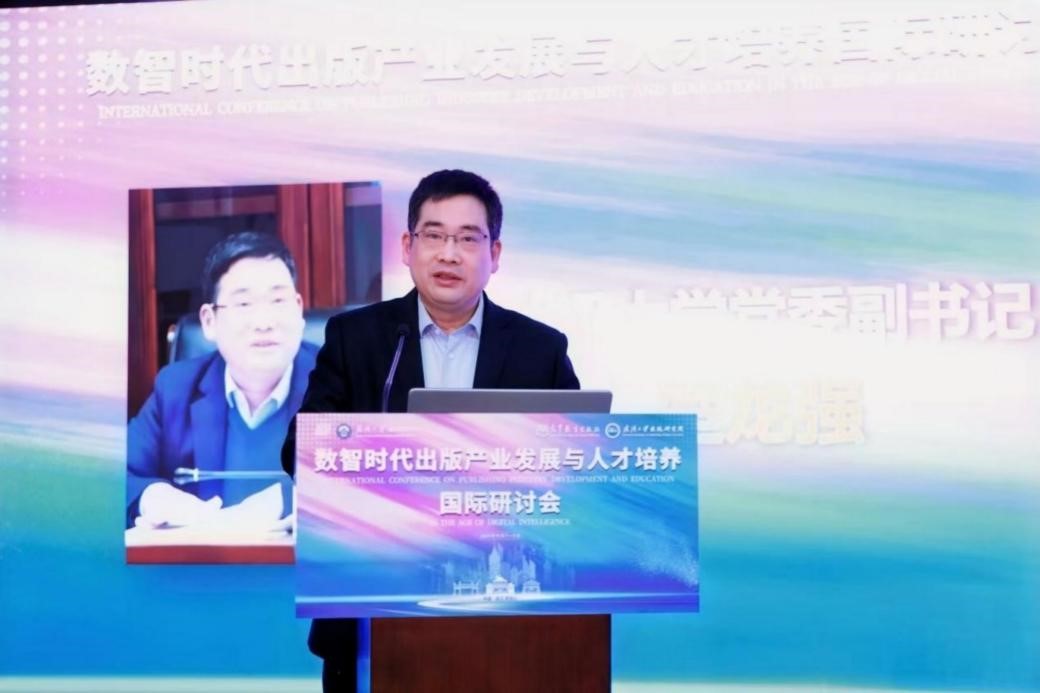
In the opening ceremony, Longqiang Chu introduced the background of Wuhan University and warmly welcomed the experts and scholars. He emphasized that in the information age of the 21st century, against the backdrop of a globalized socio-economic situation, the publishing industry and publishing education must continuously innovate to adapt to the demands of the era and social development. The gathering of publishing experts and scholars today to discuss new trends in the development of the publishing industry and new paths for talent cultivation in the digital intelligence age would provide stronger theoretical foundations and intellectual support for the development of the publishing industry and publishing education.
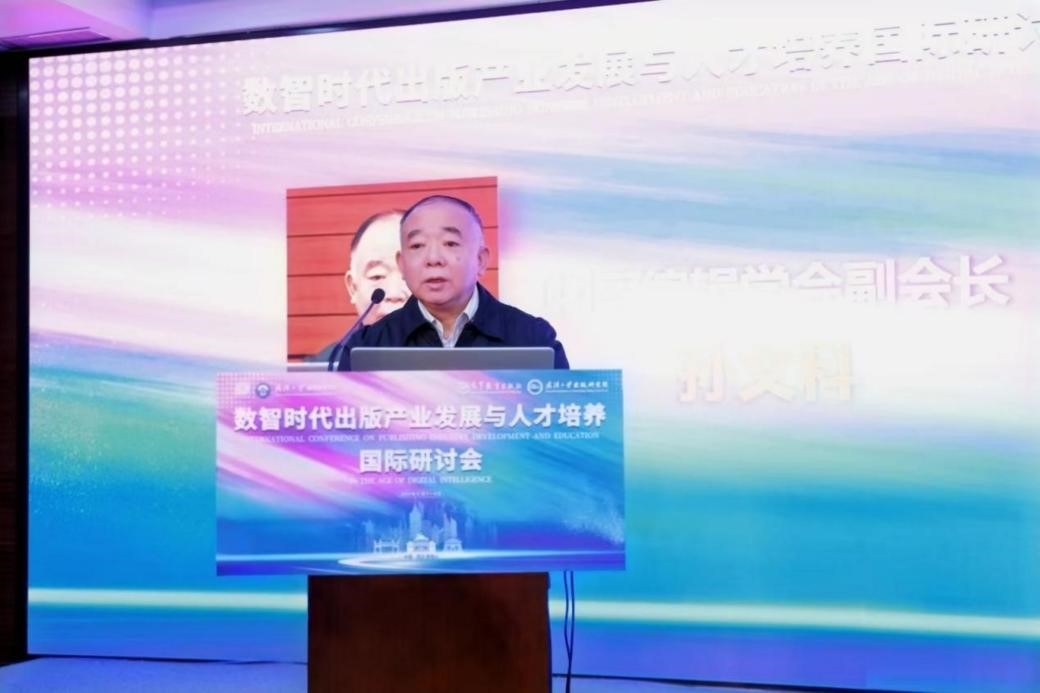
Wenke Sun reviewed the previous conferences and highly affirmed the contributions made by the School of Information Management at Wuhan University to the convening and content innovation of past conferences. He indicated that it is necessary for domestic and international experts and scholars to jointly reform the higher education curriculum system and teaching models of publishing disciplines, clarify core talent cultivation ideas, and achieve talent cultivation goals under the trend of intelligent publishing.
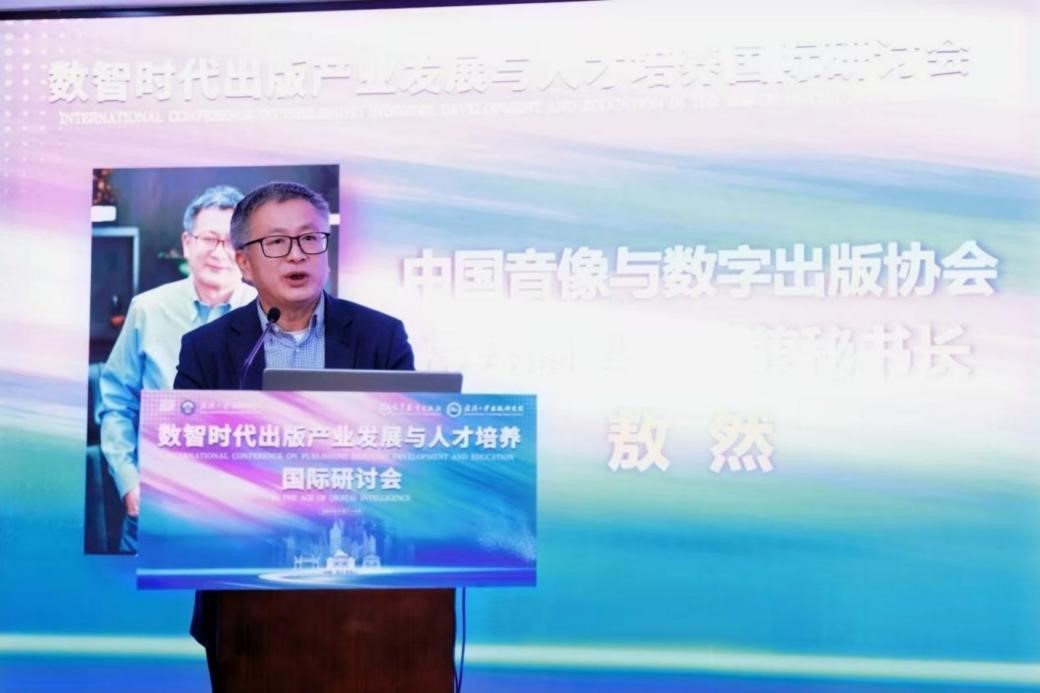
Ran Ao stated that as a bridge connecting regulatory authorities with academia and industry, China Audio-video and Digital Publishing Association will work closely with Wuhan University to promote cooperation between Wuhan University and high-level digital publishing enterprises, deeply explore digital humanities resources, advance the construction of high-quality academic resource platforms, and cultivate innovative digital publishing talents.
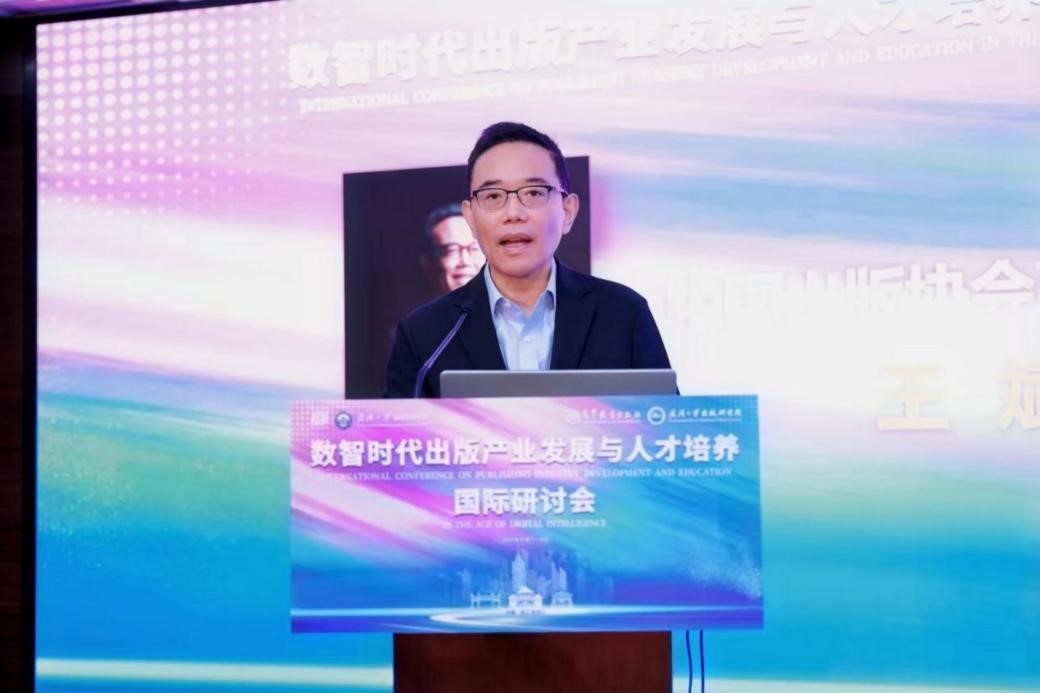
Bin Wang pointed out that the publishing industry in the digital intelligence age should have a broader international perspective. Internationalization is a necessary path and significant characteristic of becoming a strong publishing nation. How to leverage digitization for internationalization has become a common focus. This conference provides an excellent platform for exchanges between China's publishing industry and those of other countries and regions.
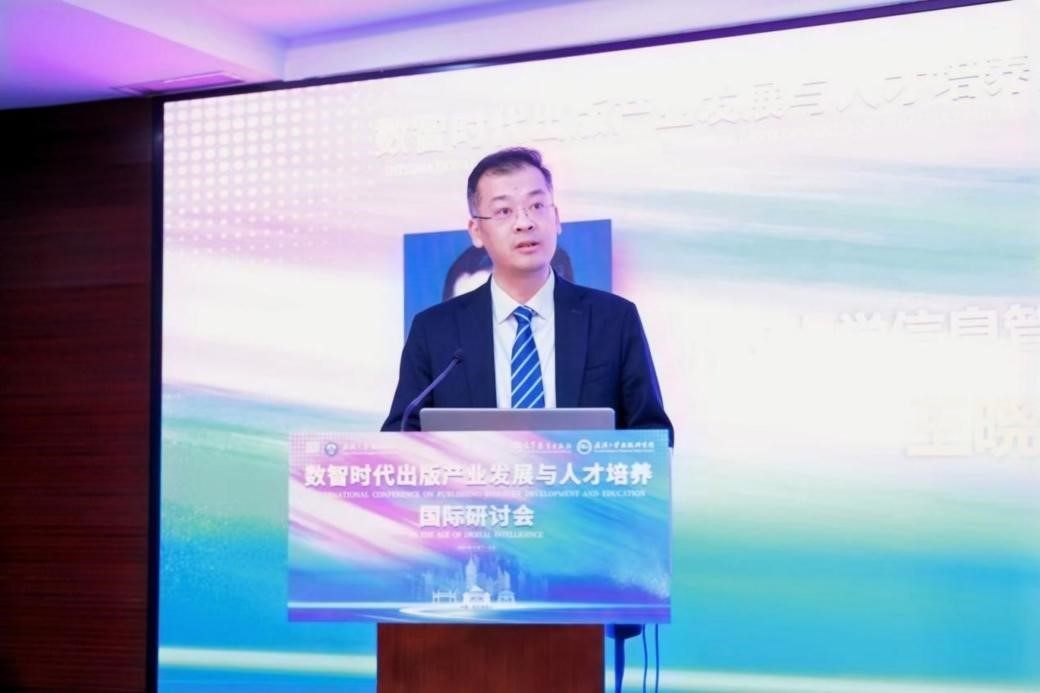
Xiaoguang Wang, Dean of the School of Information Management, noted that while the form of content delivery may change from printed books to e-books, the original aspiration and mission of publishers remain unchanged. Whether publishers can use artificial intelligence to achieve rebirth in publications is a frontier topic of concern to both the publishing industry and academia.
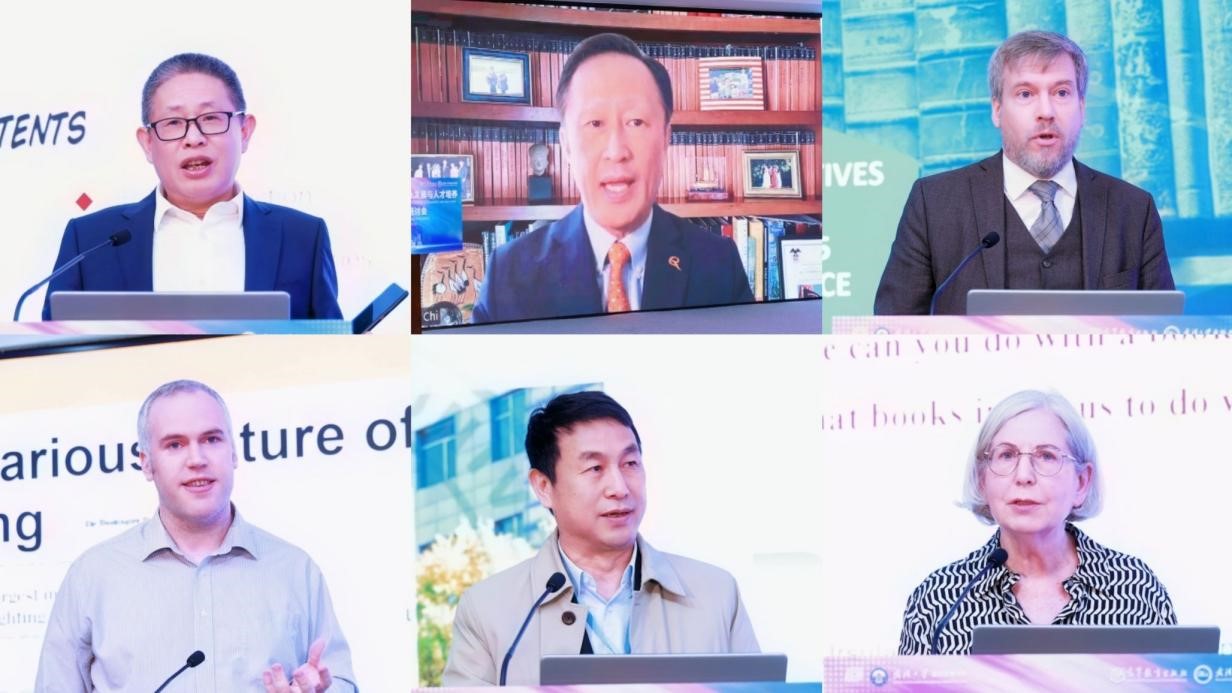
Jie Long, Deputy Chief Editor of Higher Education Press, presided over the first session of keynote speeches.
Qing Fang, Dean of the Publishing Research Institute at Wuhan University, pointed out that China still has considerable room for development in emerging fields such as online literature, online games, data publishing, metaverse, and AI publishing, which are also the most active areas for new quality productivity in publishing.
Youngsuk Chi, Chairman of Elsevier and Public Affairs President of RELX Group, suggested that the publishing industry should collaborate with AI developers to enhance the reliability and social value of AI.
Niels Peter Thomas, President of Greater China at Springer Nature and Global Books Business President, highlighted the positive role of artificial intelligence creation in technology but also raised potential issues of academic misconduct.
Simon Rowberry, Director of Research at UCL Department of Information Studies and Director of Publishing, pointed out that digital texts are currently in an extremely unstable state and more attention should be paid to documenting and preserving the evolution of digital publishing.
Anlun Wan, Dean of the Digital Publishing Research Institute at Beijing Normal University, pointed out that cooperation between schools and enterprises and the integration of industry and education are important paths for cultivating talent in publishing discipline.
Ursula Rautenberg, Professor at the University of Erlangen-Nuremberg, explored the question of whether practical activities centered around printed books can still continue to exist in the context of the digital age.
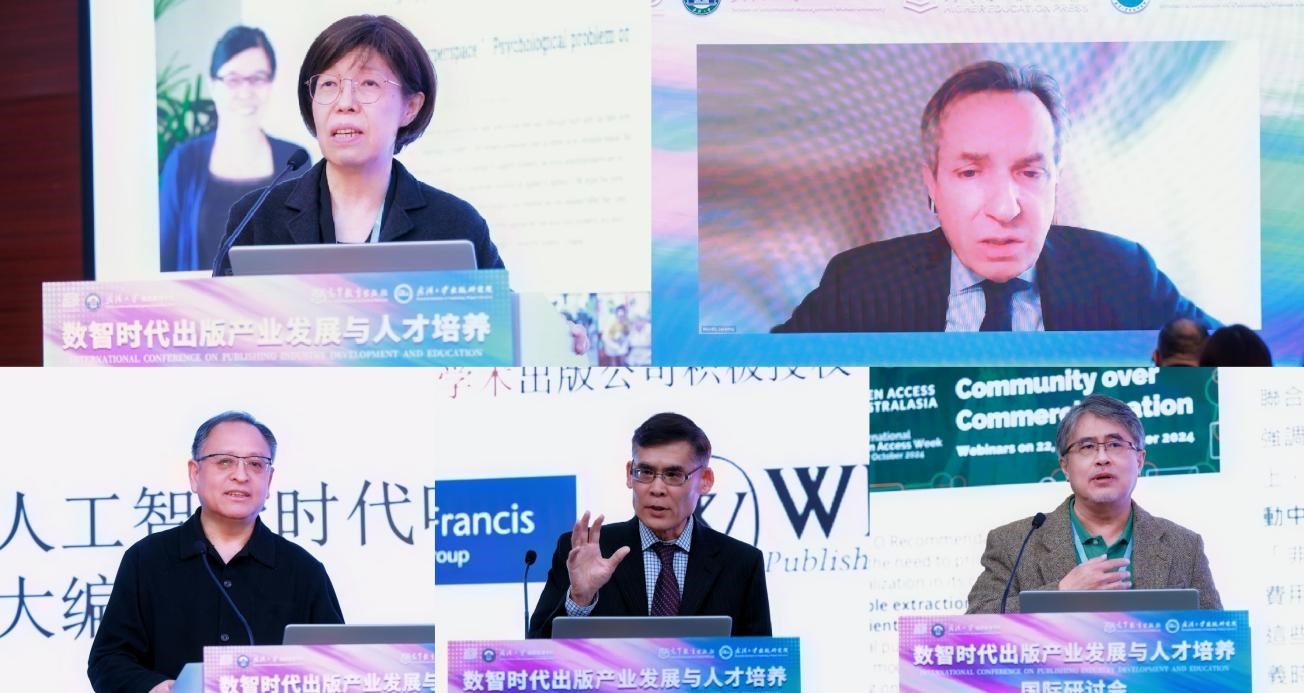
Weihua Zhou, Professor at the School of Journalism at Renmin University of China, hosted the second session of the keynote speeches.
Theng Yin Leng, Director of the Centre for Healthy and Sustainable Urbanisation at the Wee Kim Wee School of Communication and Information, Nanyang Technological University, proposed that the publishing industry could deepen cooperation with the gaming industry to improve the quality of life for the elderly using new technologies.
Jeremy North, Global Books Business President at Taylor & Francis Group, stressed that while utilizing AI technology, the publishing industry should let human being play a leading role.
Yushan Wei, Deputy Chairman and Secretary-General of Taofen Foundation, proposed that editors in the digital intelligence age should adhere to culture as the mainstay, supplemented by AI technology, avoiding an oversupply of AI-generated content.
Xiaochuan Lian, Professor at the Department of Publishing at Pace University pointed out that the right to train artificial intelligence can become a new revenue stream for publishers in the future. This also represents an important direction for publishers to address data crises and promote digital transformation.Jeong-Yeou Chiu, Professor at the Institute of Library and Information Science at National Chengchi University, emphasized the importance of openness and fairness in academic journals, discussing the issue of balancing the rights of authors and publishers.
This year's conference also included four parallel forums themed "Construction of Basic Publishing Theory and Innovation in Talent Cultivation in the Digital Intelligence Age," "Empowerment of Intelligent Technology and Deep Integration of Publishing," "Academic Publishing and Knowledge Production Driven by Intelligence," and "Writing, Reading, and Dissemination Under Intelligent Media." There were also three special seminars on topics like "Digital Cradle Copies: Function, Structure, and Landscape of Contemporary E-books," "Pathways and Practices of Quality Management in the New Era of Publishing," and "Degree-awarding Site Construction of Publishing Science and High-Quality Development of Publishing Science."
The International Conference on Publishing Industry and Publishing Education was initiated by Wuhan University, Pace University, and Higher Education Press in 2006. The 7th International Conference on Publishing Industry and Publishing Education in the Digital Intelligence Age was organized by the School of Information Management and the Publishing Research Institute at Wuhan University, along with the Editorial Board of China Editing (in Chinese) and Publishing Journal (in Chinese), with guidance and support from the China Publishing Association, China Redactological Society, and the China Audio-video and Digital Publishing Association. Nearly 300 representatives from universities, research institutes, and publishing companies attended the conference from the United States, the United Kingdom, Germany, Singapore, and other countries and regions.